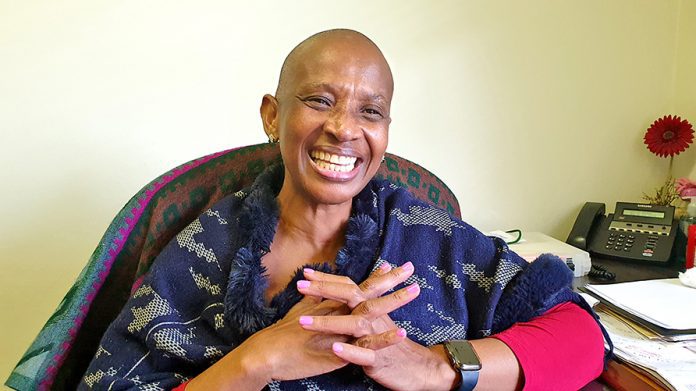For South Africa to tackle the major challenges brought about by mental illness, the government needs to put more resources into infant mental health, says expert Dr Mmatlala Mabeba.
Mabeba, a psychiatrist with 29 years of experience in the public and private sectors, says mental health is at the centre of the country’s challenges, and the best place to start tackling the rising rate of alcohol and substance abuse, crime, gangsterism, domestic violence, gender-based violence and corruption, is for the government to intervene in the mental healthcare of pregnant women.
“You can look at any of the news making headlines this week – at the crux of these problems are mental health issues. From the 21 teenagers that died at Enyobeni tavern in the Eastern Cape, to parents killing their children, prisons that are full, and corrupt leaders – all this speaks of a society with a mental health crisis,” she said.
The 55-year-old Mabeba, who runs a successful private practice in the City of Tshwane, says when you add other challenges, such as a shortage of mental healthcare workers and the stigma associated with mental illness, you have a mental health disaster.
“There are a total of 650 psychiatrists who are registered with the HPCSA [Health Professions Council of South Africa]. Of this number 510 are in the private sector,” said Mabeba, adding that the public sector is serviced by only 20% of psychiatrists. She also bemoans the number of black psychiatrists in the country, saying that more than half of the registered professionals are white.
Mabeba studied for her medical degree and postgraduate degree at the Medical University of South Africa, now known as Sefako Makgatho Health Sciences University. She later specialised in child psychiatry at the University of the Witwatersrand, and is now enrolled for a master’s of philosophy degree in infant mental health at Stellenbosch University.
She says greater focus should be placed on the mental wellbeing of pregnant women. “We need to start with infant mental health – and it starts with pregnant women. We will deal with a lot of problems in our families, communities and society when we prioritise the mental health of pregnant women. By ensuring that pregnant women have the mental healthcare they need, we are able to deal with the issues related to the woman and the child, and we are able to detect other issues earlier. If you have a depressed mother, that woman will not be able to bond with her child. Attachment becomes an issue … Infant mental health also becomes a concern.
“We need to go back to the drawing board … We can talk about treatment for mental illness, but we also need to understand where some of these issues start. We have women who are pregnant with no support. Some are dependant on nannies. Who will be able to identify that a woman is not herself in this set-up? With our nuclear families, who will pick up that you have postnatal depression?”
Mabeba, from Polokwane, says she was influenced by her father, who was a health inspector, to become a doctor.
“He made sure I met doctors … I did my internship in psychiatry and I fell in love with it.”
She would like to see more mental health awareness programmes.
“We wait for a tragedy to happen to talk about mental health. I am so impressed with YFM DJ Malume Pompo who talks openly about his struggle with mental illness. We need more people like him to destigmatise mental health,” she added.
- Dr Mmatlala Mabeba is soon going to write a regular column for Sunday World on mental health issues.
Follow @SundayWorldZA on Twitter and @sundayworldza on Instagram, or like our Facebook Page, Sunday World, by clicking here for the latest breaking news in South Africa. To Subscribe to Sunday World, click here.



